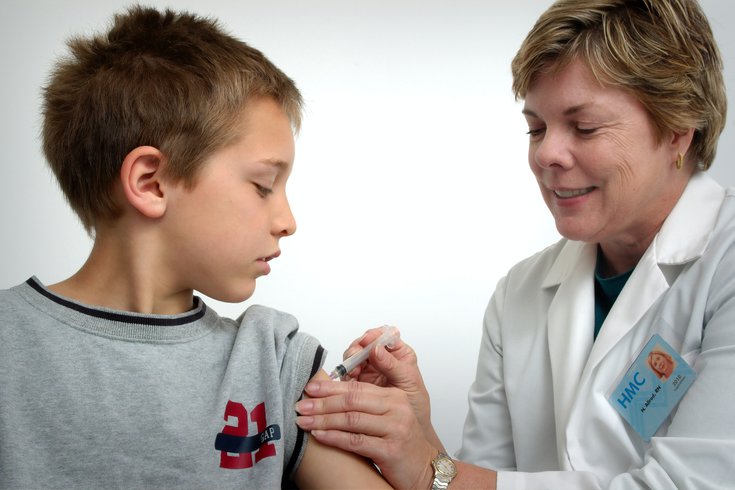
December 08, 2020
 CDC/Unsplash.com
CDC/Unsplash.com
Nationally, children are on track to miss an estimated 9 million vaccination doses in 2020. Some immunizations – like measles – have dropped by as much as 26%.
Medical experts began sounding the alarm that children weren't getting the routine immunizations necessary to protect them from highly contagious diseases shortly into the coronavirus pandemic.
Parents were urged to keep their children's wellness visits even amid the most stringent COVID-19 restrictions. Still, many parents did not heed that advice.
Now, millions of children are not up-to-date on their routine vaccinations, according to a new report from the Blue Cross Blue Shield Association. Forty percent of parents said their children missed vaccinations because of the pandemic.
The report compared member claims data on vaccination doses delivered from January to September 2020 with data from the same time period in 2019.
Nationally, children are on track to miss an estimated 9 million vaccination doses in 2020. Vaccinations for some illnesses are down as much as 26% compared to 2019.
Yet, the Philadelphia region bucked the national trend.
Vaccination rates for diphtheria, tetanus and whooping cough (delivered in the TDAP shot), measles, mumps and rubella (administered in the MMR shot), and polio were up by six to seven percentage points, according to Independence Blue Cross.
The MMR vaccination rate was 92.7% and the TDAP rate was 91.1%. The rate for polio was 93.5%.
"Here in our region we’re extremely pleased that parents, caretakers and pediatricians are making sure that children are keeping up with their regular wellness visits and crucial vaccinations," said Dr. Richard Snyder, chief medical officer at Independence. "We’ve seen many pediatricians divide their office hours to see sick children separately from well children to help ease concerns about COVID-19."
At the start of the pandemic, Nemours duPont Pediatrics set up outdoor tents for immunizations, an effort to help parents feel safe to bring their infants for vaccinations, Division Chief Dr. William McNett said. They later opened the tents to older patients, too.
The sharp decline in vaccination rates has public health officials worried about possible measles, whopping cough and polio epidemics. If vaccination levels dip too low, herd immunity may disappear.
Herd immunity is the resistance of a community to the spread of illness due to a large proportion of individuals being immunized. It offers protection to people who cannot get vaccinated for medical reasons.
The Centers for Disease Control and Prevention's herd immunity requirements for measles is 93.0% of a community to be vaccinated, but the estimated 2020 vaccination rate is only 88.2%, according to the BCBS report.
For whooping cough, the CDC requirement is 92%, but the estimated vaccination rate is only 79.3%. The vaccination rate for polio, at 88.9%, is still hovering above the CDC requirement for herd immunity – 86%.
Most vaccination delays occurred during two pandemic time periods, the report shows. They first dropped from March to May – the early months of the pandemic, when restrictions were tightest. They fell again in August, a response to the virtual learning adopted by school districts across the country.
The CDC previously reported that routine vaccinations fell by 2.5 million doses between March 13 – when President Donald Trump declared a national emergency for COVID-19 – and April 19. The authors of that study noted that as social distancing requirements relax, children will become more vulnerable to these preventable diseases.
"Pediatricians and pediatric practices have made quick changes to ensure that you and your child will be safe in our offices," Dr. Lisa Biggs, associate chief medical officer of the Children's Hospital of Philadelphia Care Network, said at the time. "We want you to be safe and we want to be safe."
Many pediatric offices, like those affiliated with CHOP, take precautions to keep patients safe during well visits. Many practices separate well visits from sick visits and provide video visits when appropriate. Parents and children often are encouraged to wait in cars until an exam room is available.
Pediatricians emphasize that well visits are important for more than vaccines. They enable health care providers to evaluate the overall health of children and usually include assessments of growth, development, nutrition and behavior. Various concerns – from child care to safety to schooling – can be discussed.